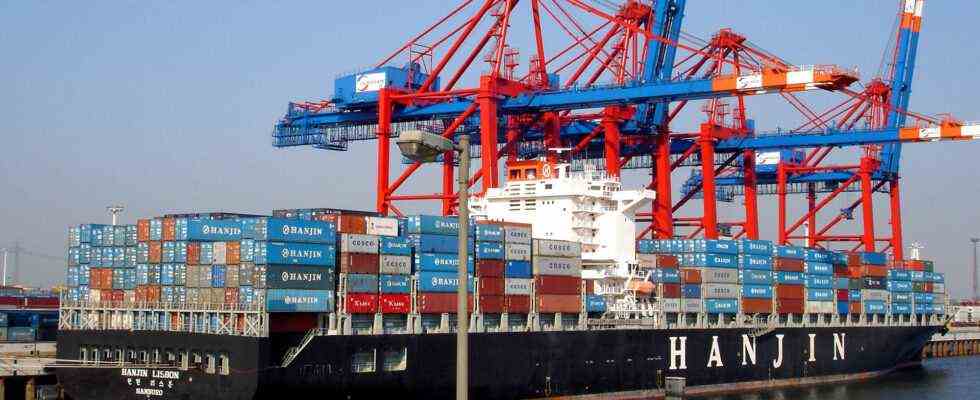Status: 10.09.2021 2:06 p.m.
The months of waiting for a new sofa or a spare part for a bicycle is not only annoying for the consumers concerned. The bottlenecks also have a high economic price.
Despite full order books, many companies are lagging behind with production. The auto industry is particularly hard hit, producing almost a quarter fewer vehicles in the second quarter of this year than in the same period in 2019, before the pandemic. The reason is the persistent lack of chips, which repeatedly forces manufacturers to stop the tapes. Car opponents may be pleased, but delivery bottlenecks affect practically all branches of industry.
Overall, the production level of German industry in the second quarter of 2021 was almost 25 percent below the pre-crisis level. If the prevailing supply bottlenecks persist – which most experts assume – the economic upturn is likely to be significantly less than expected.
Up to 40 billion euros less
As the “Handelsblatt” reports, citing an estimate by the Institute of German Economy (IW) in Cologne, value added in Germany in the coming year could be 30 to 40 billion euros lower than originally expected. The IW forecasts growth in gross domestic product (GDP) of four percent for 2022. If the supply shocks were eliminated, 4.75 percent are possible. In fact, bottlenecks like the recent closure of a terminal in one of China’s largest trading ports pose immense challenges for companies. The week-long blockade of the Suez Canal also hit many companies in Europe hard.
Economic output will therefore remain below normal this year as well. The IW researchers put the loss of added value in the second half of the year alone at around 30 billion euros. “Despite the regained freedom, the business of many companies, for example in the service sector, is still not going well,” said the Cologne economists. Up to and including the second quarter of 2021, the pandemic had so far lost 300 billion euros in added value. And should there be another lockdown due to the current fourth corona wave, the experts expect an additional loss of added value of ten billion euros in the fourth quarter.
Probably no improvement this year
Experts like the head of the Hamburg container shipping company Hapag-Lloyd, Rolf Habben Jansen, are skeptical that the industry’s delivery problems will soon ease. At the end of June he had expected the fall to calm down. He now assumes that the situation will improve in the first quarter of 2022 at the earliest. Monika Schnitzer does not believe that the bottlenecks will end quickly either. “In particular, the shortage of semiconductors is likely to burden the economy even longer because the demand for cars and electronic devices will remain high and capacities cannot be built up so quickly,” she told the “Handelsblatt”.
According to a survey by the German Chamber of Commerce and Industry (DIHK) among 3,000 companies, only a fifth of companies expect the situation to improve by the turn of the year. The mood in the German economy has deteriorated accordingly. The ifo business climate index fell to 99.4 points in August, after 100.7 points in July. The decline was mainly due to the significantly less optimistic expectations of companies. Companies are particularly concerned about the supply bottlenecks for intermediate products in industry.
The leading economic institutes have therefore cut their economic forecast for 2021. The Ifo Institute expects 3.3 percent growth, 0.4 percentage points less than in March.
Strong recovery next year
“In the short term, bottlenecks in the delivery of preliminary products in particular have a dampening effect,” explains Timo Wollmershäuser, head of the Ifo forecast. “The recovery, which is strong in itself, triggered by the openings, is moving a little further back than we expected in the spring.”
If, contrary to expectations, the procurement problems should ease up by the end of the year, a strong economic recovery can be expected in 2022, because the existing orders would have to be processed ”, said Wollmershäuser.

